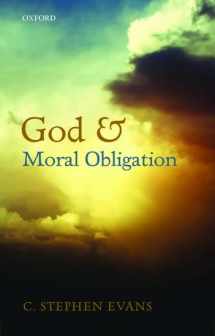
God and Moral Obligation
Book details
Summary
Description
Is there a connection between religion and morality? Ivan Karamazov, in Dostoevsky's The Brothers Karamazov, famously declares that if God does not exist, then "everything is permitted." Most philosophers reject such a view and hold that moral truths do not depend on God. C.Stephen Evans argues that the truth lies somewhere between these two claims. It is not quite right to say that there would be nothing left of morality if God did not exist, but moral obligations do depend on God ontologically. Such obligations are best understood as God's commands or requirements, communicated to humans in a variety of ways, including conscience.
In God and Moral Obligation, Evans also argues that two views often thought to be rivals to a divine command morality, natural law ethics and virtue ethics, are not rivals at all but provide necessary complementary elements of a comprehensive morality. A number of objections to a divine command account of moral obligations are posed and answered. In the concluding chapters Evans points out the advantages such an account has over secular rivals. The authority and objectivity of moral obligations are best explained by seeing them as divine commands.


We would LOVE it if you could help us and other readers by reviewing the book
Book review



